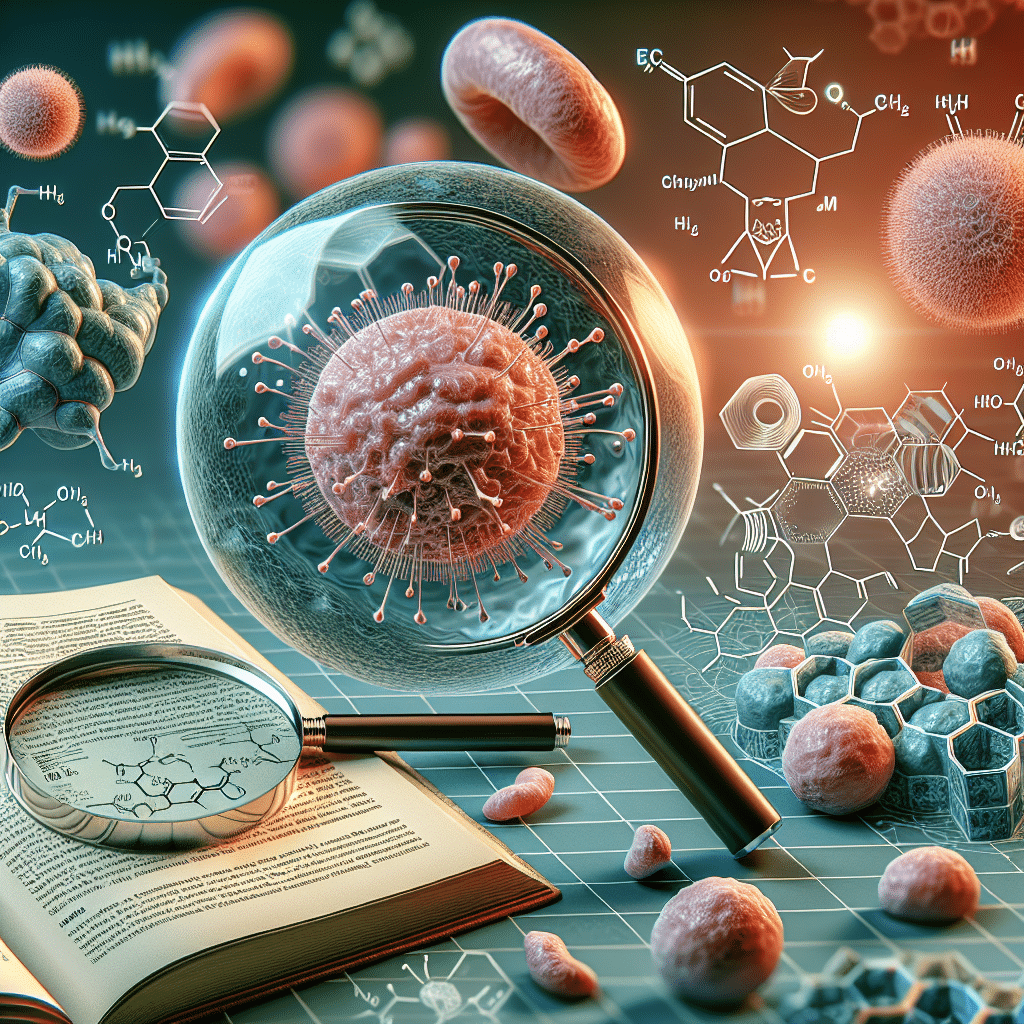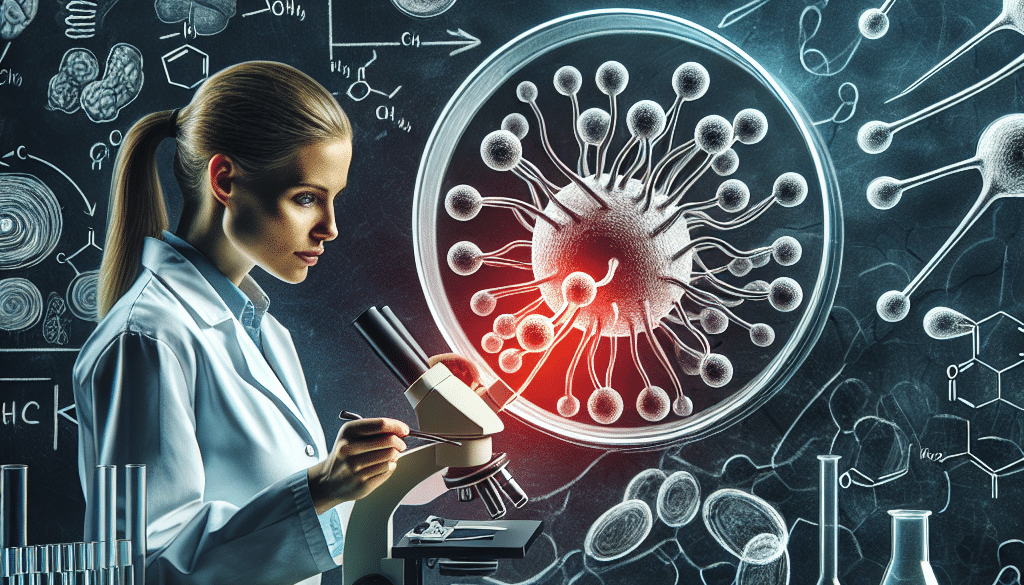Spermidine Cancer: Research Insights
-
Table of Contents
- Spermidine and Cancer Research: Unveiling Potential Therapeutic Insights
- Understanding Spermidine
- The Link Between Spermidine and Cancer
- Key Research Findings on Spermidine and Cancer
- Case Studies and Clinical Trials
- Challenges and Considerations in Spermidine Research
- Statistics and Impact on Cancer Research
- Conclusion: Spermidine’s Role in Cancer Therapy
- ETprotein’s Protein Products: Supporting Health and Wellness
Spermidine and Cancer Research: Unveiling Potential Therapeutic Insights

Cancer remains one of the most challenging diseases of our time, with researchers continuously seeking new and effective ways to combat its many forms. Among the myriad of compounds being studied, spermidine, a naturally occurring polyamine, has emerged as a potential ally in the fight against cancer. This article delves into the research insights surrounding spermidine and its implications in cancer therapy.
Understanding Spermidine
Spermidine is a biogenic polyamine found in all living cells and is essential for cellular growth and function. It is derived from the amino acid ornithine and is involved in various metabolic processes. Spermidine levels in the body are known to decrease with age, which has led researchers to investigate its potential health benefits, including its role in cancer prevention and treatment.
The Link Between Spermidine and Cancer
Research has shown that spermidine can induce autophagy, a cellular process that removes damaged components and recycles them for cellular repair and homeostasis. Autophagy plays a crucial role in preventing the accumulation of cellular damage and has been associated with a reduced risk of cancer. Spermidine’s ability to promote autophagy has therefore positioned it as a compound of interest in oncology research.
Key Research Findings on Spermidine and Cancer
Several studies have explored the relationship between spermidine and cancer, with promising results. Here are some of the key findings:
- Cellular Studies: In vitro studies have demonstrated that spermidine can inhibit the growth of cancer cells and induce apoptosis, or programmed cell death, in various cancer cell lines.
- Animal Studies: Research on animal models has shown that dietary supplementation with spermidine can reduce tumor growth and improve survival rates.
- Epidemiological Studies: Observational studies in humans suggest that higher dietary intake of spermidine is associated with a lower risk of cancer mortality.
These findings suggest that spermidine may have chemopreventive properties and could be a valuable addition to cancer treatment regimens.
Case Studies and Clinical Trials
While preclinical studies have been promising, clinical trials are necessary to establish the efficacy and safety of spermidine in cancer patients. Some ongoing and completed clinical trials are investigating the effects of spermidine supplementation on cancer outcomes. For example, a clinical trial conducted at the Medical University of Graz in Austria is exploring the impact of spermidine on colorectal cancer patients.
Challenges and Considerations in Spermidine Research
Despite the encouraging research, there are challenges to be addressed:
- Dosage and Administration: Determining the optimal dose of spermidine for cancer prevention or treatment is complex and requires further investigation.
- Side Effects: While spermidine is generally considered safe, high doses could potentially lead to side effects, and its long-term effects are not fully understood.
- Interactions with Cancer Therapies: It is crucial to understand how spermidine interacts with existing cancer treatments to avoid potential adverse effects.
Researchers must overcome these challenges to fully harness the potential of spermidine in cancer therapy.
Statistics and Impact on Cancer Research
The impact of spermidine on cancer research is significant, with studies showing that it could potentially enhance the effectiveness of chemotherapy and radiation therapy. Although it is too early to quantify its impact in terms of statistics, the ongoing research holds promise for future cancer treatments.
Conclusion: Spermidine’s Role in Cancer Therapy
In conclusion, spermidine has emerged as a compound of interest in the fight against cancer due to its ability to induce autophagy and potentially inhibit cancer cell growth. While research is still in its early stages, the insights gained so far provide hope for the development of new cancer therapies that incorporate spermidine. Continued research and clinical trials will be essential to fully understand the role of spermidine in cancer prevention and treatment.
ETprotein’s Protein Products: Supporting Health and Wellness
In addition to research on compounds like spermidine, maintaining overall health and wellness is crucial in the fight against diseases like cancer. ETprotein’s range of high-quality protein products can play a vital role in supporting a healthy diet, which is an important aspect of cancer prevention and recovery. Their organic, non-GMO, allergen-free proteins are ideal for individuals looking to enhance their nutritional intake with clean and sustainable options.
Whether you’re a manufacturer, distributor, or consumer, ETprotein’s products offer the purity and quality necessary to meet your protein needs. Their commitment to excellence ensures that you receive the best possible ingredients for your health and wellness products.
About ETprotein:
ETprotein, a reputable protein and L-(+)-Ergothioneine (EGT) Chinese factory manufacturer and supplier, is renowned for producing, stocking, exporting, and delivering the highest quality organic bulk vegan proteins and L-(+)-Ergothioneine. They include Organic rice protein, clear rice protein, pea protein, clear pea protein, watermelon seed protein, pumpkin seed protein, sunflower seed protein, mung bean protein, peanut protein, and L-(+)-Ergothioneine EGT Pharmaceutical grade, L-(+)-Ergothioneine EGT food grade, L-(+)-Ergothioneine EGT cosmetic grade, L-(+)-Ergothioneine EGT reference grade and L-(+)-Ergothioneine EGT standard. Their offerings, characterized by a neutral taste, non-GMO, allergen-free attributes, with L-(+)-Ergothioneine purity over 98%, 99%, cater to a diverse range of industries. They serve nutraceutical, pharmaceutical, cosmeceutical, veterinary, as well as food and beverage finished product distributors, traders, and manufacturers across Europe, USA, Canada, Australia, Thailand, Japan, Korea, Brazil, and Chile, among others.
ETprotein specialization includes exporting and delivering tailor-made protein powder and finished nutritional supplements. Their extensive product range covers sectors like Food and Beverage, Sports Nutrition, Weight Management, Dietary Supplements, Health and Wellness Products, and Infant Formula, ensuring comprehensive solutions to meet all your protein needs.
As a trusted company by leading global food and beverage brands and Fortune 500 companies, ETprotein reinforces China’s reputation in the global arena. For more information or to sample their products, please contact them and email sales(at)ETprotein.com today.












